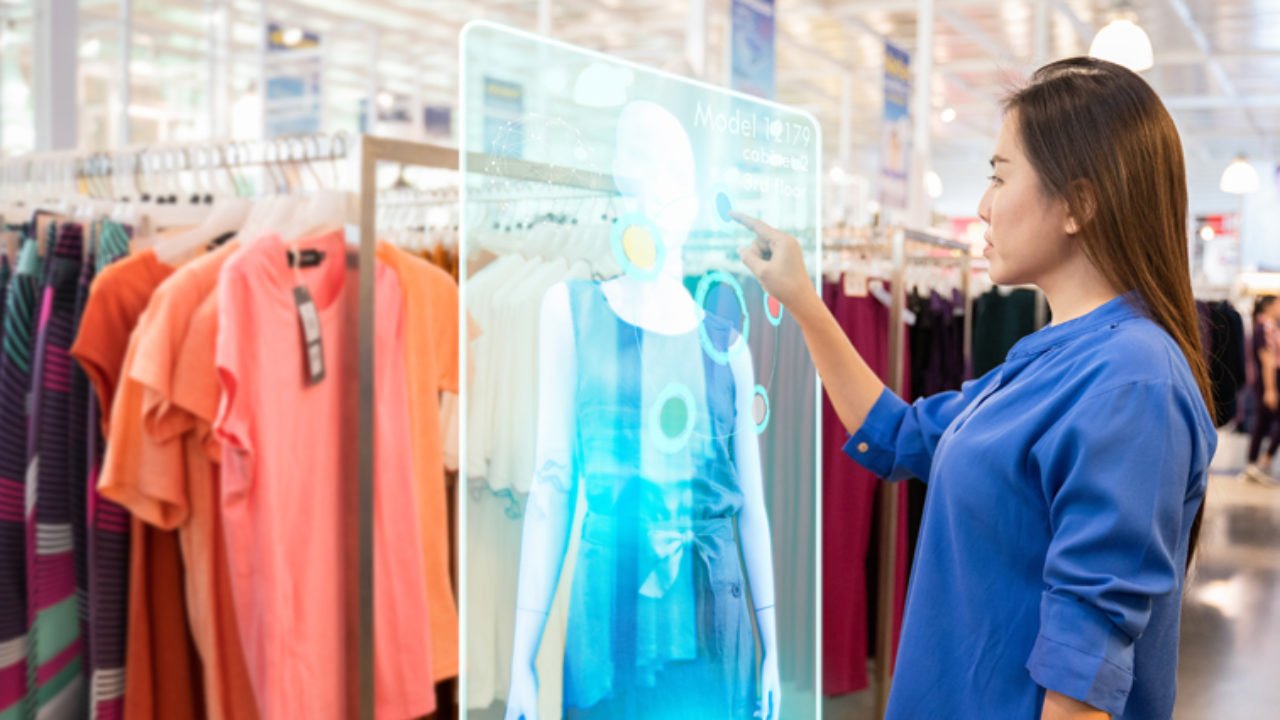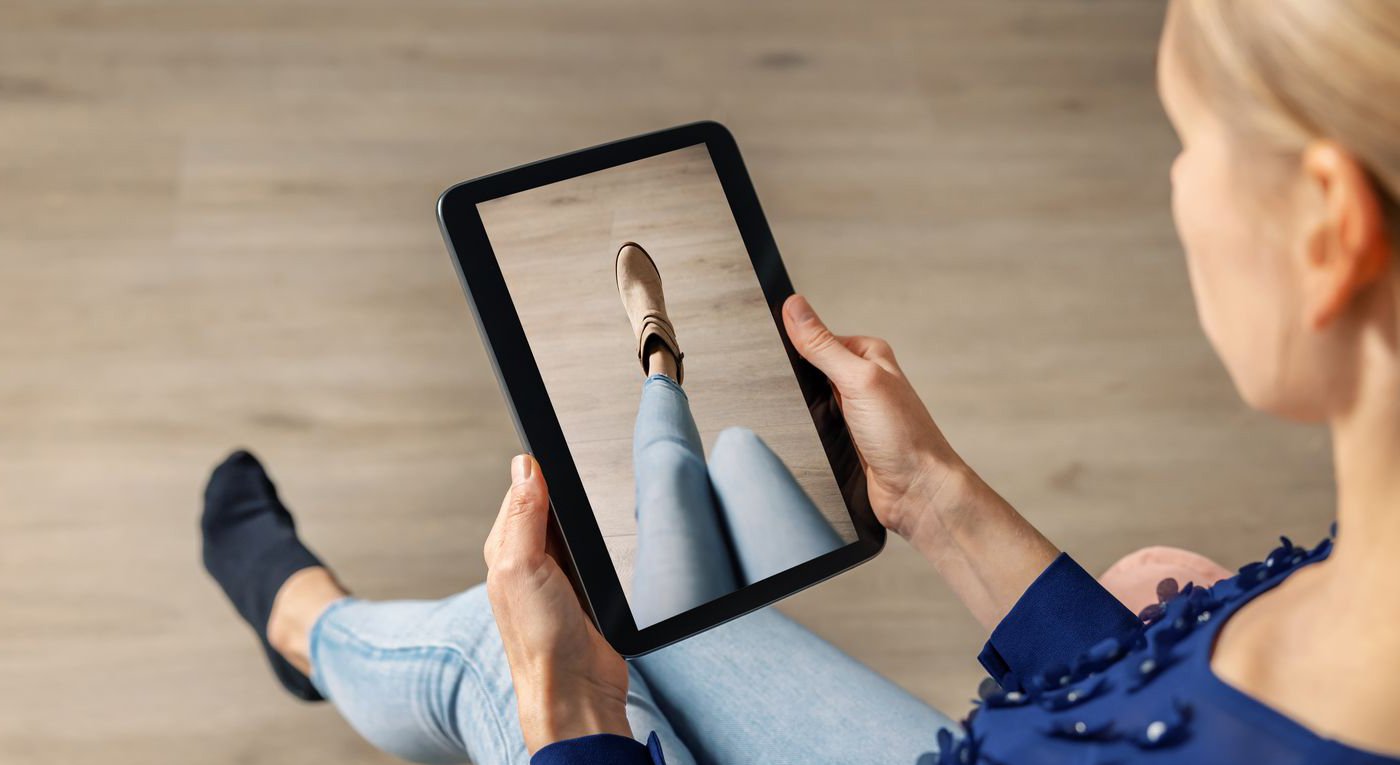Address
Studio 03
SUM Studios
1 Hartley Street
Sheffield
S2 3AQ
[email protected]
0114 399 1023

E-commerce has fundamentally changed the way consumers browse, buy & return items and the level of convenience expected from brands. Experts are now predicting a new seismic shift in the way consumers around the world engage with online shopping. This revolution is coming through the marriage of the Metaverse and retail.
How will the brands globally adjust to the rapid change we’re experiencing, what will happen with those left behind, and is there a future for retail with or without Metaverse?
To better understand what’s currently happening, and possibly predict the future to some extent, we must go back in history & understand how the retail industry developed through time.
In the beginning, retail relied mostly on physical location. The stores at central locations in big cities naturally sold the most and became big in the retail industry. That’s also true now, and you can see high-fashion retail brands in central locations in every major city.
But with a central location, there are also big expenses. We don’t even want to think about how much some of these brands pay in rent each month.
These expenses are not just on the brand’s side too. Petrol, parking and public transport costs have all disproportionately increased over the past decades, making it more costly for shoppers to get to their favorite stores.
With the development of the Internet, endless opportunities emerged, or at least that’s what we thought back then. Having a webshop with high-quality images of merchandise, and being able to sell directly to customers who get their order in a couple of days seemed like science fiction only 3 decades ago. And now, many shoppers are completely used to it, and are even surprised when some retail stores don’t also have webshops. It’s also leveled the playing field for many smaller, more niche brands and products to be able to sell to their customers without the huge overheads of a physical store full of salespeople.
While it’s true that e-commerce has democratized the retail landscape, allowing niche brands to compete with larger brands for customer attention, it’s also created problems of its own. One major issue facing many businesses with online stores is the cost of returning items. Because shoppers can’t touch, feel, try on or try out a product before buying, shoppers have to rely on the imagery available online.
But what does the future hold? Does the Metaverse solve the problems facing online stores? Will the retail in the Metaverse change things, and how? Will Metaverse shopping become a thing we’re used to like we’re used to buying from webshops? Are there going to be Metaverse shopping malls? And what does that mean for retail brands & customers?
We think that Metaverse will certainly create an immersive retail experience, unlike anything we’ve seen. Larger brands are already experimenting with a combination of digital twin technology, augmented reality and virtual reality to create new ways of shopping that could truly change the industry.
Imagine putting on a VR headset, walking into a virtual store then trying on clothing just like you would in a real life shopping center. This would mean increased buyer confidence and vastly reduce the number of costly returns a company has to deal with.

Why are retailers interested in Metaverse?
Immersive 3D experiences have vastly grown in popularity thanks to gaming. But with Facebook’s rebrand into Meta, multiple opportunities have arisen. Virtual and augmented reality is not designed just for fun & gaming, but also for growing businesses & better marketing.
Currently, only major retail brands enjoy the benefits of Metaverse. But as with everything, it will soon become accessible to every retail business. It’s just a matter of time, and courage to dive deeper into the Metaverse for retail to reap the benefits of it.
While there still aren’t Metaverse retail stores, popular retail brands such as Nike, Adidas, Gucci, Samsung, and Louis Vuitton are buying space in the Metaverse to set up shops there. Just like they rent and buy properties in the real world.
Dior took it a step further and developed an immersive retail experience that resembles what we could soon explore as the Metaverse shopping experience.
The advantages of retail in Metaverse are pretty obvious, but it doesn’t hurt to go over them.
While having such an immersive retail experience seems like a dream come true, it still comes with certain disadvantages. People’s buying decisions are influenced by their senses. And while retail in the Metaverse is better than an image of a pair of jeans, it still doesn’t activate all human senses.
When it comes to clothing, people love to touch, feel and try on different pieces and then make a decision. We’ll see how retail and Metaverse will solve touching a piece of clothing, but we already know that they’re working on virtual “try on”.
The technology for virtual try-on already exists, even though it’s still in the early stages. By combining virtual & augmented reality Magic mirrors allow people to try on a piece of clothing and see how it fits them, without going through the hassle of actually trying it on.
It takes the best of both worlds. Physical and virtual reality. And we’re sure such technology will be helpful for retail in the Metaverse, and its successful development.
Will shopping in the Metaverse really become a thing?
Retail brands are definitely facing challenging times – and it’s only a matter of time before they need to make important decisions such as whether they’ll join Metaverse or not. Only the future will tell if that is the paradox of choice, and whether those who don’t adjust to the “new normal” will survive, let alone thrive.
Our perspective is that to truly thrive in the upcoming landscape brands will need to adopt a hybrid strategy but one driven by consumer behavior. If people do decide to spend time in the Metaverse then it only makes sense for brands to have a presence where their customers’ attention is, just like they’ve done with new social media platforms (tik-tok anyone?). But ultimately it will come down to how successful a platform the metaverse is and how much people embrace it.
As a company specializing in all things 3D, we’re happy to see that this kind of technology is helping businesses thrive as well. Virtual reality, virtual showrooms, and 3D tours aren’t only reserved for big companies. It’s also very exciting to speculate on the possible ways that these technologies can be implemented in the future.
Businesses of all sizes can benefit from thinking ahead of their competitors and utilizing 3D technology and virtual reality to take their marketing game to the next level.
Contact us now, and let’s talk about how your business can grow with 3D technology!